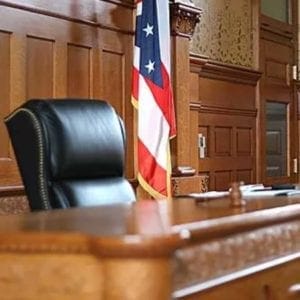 U.S. Bankruptcy Judge Melvin S. Hoffman of the District of Massachusetts ruled a Chapter 7 debtor’s assumption of a personal property lease does not require a reaffirmation agreement. In this case, the debtor sought to assume the lease of a 2017 Jeep Wrangler from USB Leasing LT. USB agreed to accept the assumption, provided that the debtor enter into a reaffirmation agreement. Subsequently, the debtor filed a motion to compel USB to allow the assumption of the lease under Bankruptcy Code § 365(p)(2), and argued conditioning a lease assumption on reaffirmation was “incorrect procedure.” The debtor later sought to withdraw his motion to compel and filed a motion to extend time to complete the reaffirmation process with USB.
U.S. Bankruptcy Judge Melvin S. Hoffman of the District of Massachusetts ruled a Chapter 7 debtor’s assumption of a personal property lease does not require a reaffirmation agreement. In this case, the debtor sought to assume the lease of a 2017 Jeep Wrangler from USB Leasing LT. USB agreed to accept the assumption, provided that the debtor enter into a reaffirmation agreement. Subsequently, the debtor filed a motion to compel USB to allow the assumption of the lease under Bankruptcy Code § 365(p)(2), and argued conditioning a lease assumption on reaffirmation was “incorrect procedure.” The debtor later sought to withdraw his motion to compel and filed a motion to extend time to complete the reaffirmation process with USB.
In response to these motions, USB sought guidance from the Court regarding consumer car leases in bankruptcy and the interplay of the assumption of personal property leases under § 365(p) and reaffirmation agreements under § 524(c) of the Bankruptcy Code. USB based its procedure for the assumption of car leases on In re Creighton, 427 B.R 24 (Bankr. D. Mass. 2007), in which the court ruled that a lease assumption under Section 365(p)(2) was a form of debt reaffirmation. The Court noted that Creighton presented “a thoughtful, creative and comprehensive analysis of the interplay between Sections 365(p)(2) and 524(c),” but ultimately could not reconcile Creighton’s holding with the requirements of the statutes.
Bankruptcy Code § 365(p)(2) governs personal property lease assumptions by individual Chapter 7 debtors. Subpart A provides in relevant part: “the debtor may notify the creditor in writing that the debtor desires to assume the lease” and “[u]pon being so notified, the creditor may, at its option, notify the debtor that it is willing to have the lease assumed by the debtor and may condition such assumption on cure of any outstanding default on terms set by the contract.” Judge Hoffman began his analysis with the statute, noting § 365(p) was added to the Bankruptcy Code as part of the Bankruptcy Abuse and Consumer Protection Act of 2005 (“BAPCPA”) to fill in gaps in the law to allow consumer debtors to retain leased personal property, “of critical importance to them,” such as a vehicle. The title of the section enacting § 365(p) was “Giving Debtors the Ability to Keep Leased Personal Property by Assumption,” which suggests the amendment’s purpose was to enable debtors to retain leased property.
Additionally, the BAPCPA also amended § 362, adding subsection (h)(1)(A), which provides for the automatic stay as to personal property of the debtor in certain circumstances, including if the debtor fails to “…enter into an agreement of the kind specified in section 524(c) applicable to the debt secured by such personal property, or assume such unexpired lease pursuant to section 365(p) if the trustee does not do so, as applicable…” 11 U.S.C. § 362(h)(1)(A). Judge Hoffman heavily emphasized that the either/or language of the statute, “makes it clear that reaffirmation and lease assumption are alternative, independent procedures.” To reinforce his reasoning, Judge Hoffman said: “To require a Section 365(p)(2) lease assumption to conform to the strictures of Section 524(c) reaffirmation would do excessive violence to the statutory scheme, not to mention to the policies underlying the statutes.”
Though disagreeing with the authority USB relied on, the Court said USB “had the right idea” in attempting to condition its willingness to the lease assumption upon the debtor reaffirming the debt, it merely used the wrong procedure. The Court suggested rather than confronting the burdens of re-affirmation, lessors that want to insure an assumed lease survives a lessee’s discharge in bankruptcy should seek a court order saying so instead. “Permitting the parties to seek court approval of a lease assumption agreement on terms that are mutually acceptable to them is the most efficient way to insure that the lease assumption process does what it is intended to do—afford debtors a shot at retaining leased personal property,” Judge Hoffman said. Here, the debtor did exactly what he was required to do according to the procedures of § 365(p). Thus, the Court ruled that reaffirmation is not a prerequisite for lease assumption, accepted the debtor’s withdrawal of his motion to compel, and denied the motion to extend as unnecessary because reaffirmation of an assumed lease is inappropriate.
Memorandum of Decision Regarding Assumption and Reaffirmation of Motor Vehicle Leases
